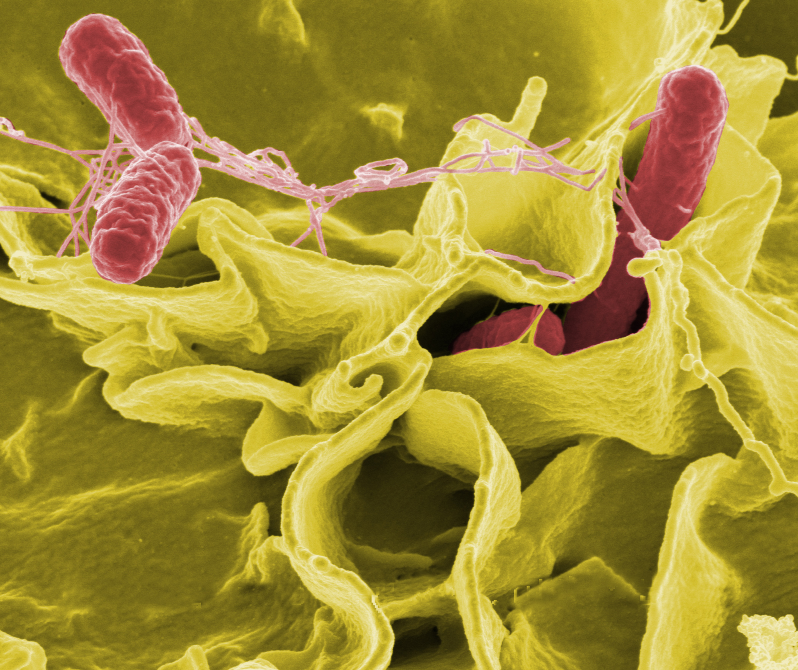John C. Christenson
Pediatrics in Review 2013;34;375
DOI 10.1542/pir.34-9-375

Salmonella is a common cause of gastroenteritis and blood infection usually spread through the consumption of contaminated water and food, and close contact with animals.
Infants younger than age one with infection were more likely to be bottle fed, had exposure to reptiles, rode in shopping cart contaminated with meat, poultry or pork, traveled overseas or attended a daycare with an infected infant or child.
- Foods: pork, meat, poultry, fruits, vegetables, peanut butter, dairy products, lunch meats, cheese, juice
- Animal pet exposure: reptiles, chickens, pigs, turtles, lizards, iguanas, snakes, hedgehogs, rodents fed to reptiles and amphibians
- Nosocomial outbreaks: overcrowded and unsanitary environments, schools, daycares
- International travel
- Seasonal peaks during rainy seasons
- Contaminated drinking water
Gastroenteritis is the most frequent presentation of Salmonella infection, including nausea, vomiting, abdominal pain and non-bloody diarrhea. Other symptoms may include body aches, muscle soreness, and headaches. Incubation period is 6 to 12 hours. Bacteremia is common in children under the age of 1 with Salmonella and most require hospitalization.
Previously healthy children and adults with positive stool culture for Salmonella with uncomplicated gastreoenteritis do not require antibiotic treatment and the disease is self-limiting. Infants younger than 3 months should be treated.
- Improve quality of drinking water
- Good hand hygiene when handling raw meat or egg with proper sanitation of equipment.
- People should not consume raw eggs or undercooked meats
- Mothers are encourage to breastfeed their infants to help reduce infection
- Parents and child should be counseled on Salmonella risks when owning a pet, reptile esp. iguana, snake, lizard, or turtle
- Owners need to wash hands after handling animals, their cages or tanks. Do not allow the animal to roam around the house or kept in the kitchen. Cages and tanks should not be washed in the kitchen sink.
- Those children under age 5 or immune-compromised should not handle high-risk animals.
MacKoul Pediatrics is an amazing local pediatrics office in Cape Coral, FL where caring, compassionate doctors and nurses work with you to keep your children as healthy as possible. MacKoul cares for children from birth to college age, from Cape Coral, Fort Myers, Naples, and beyond.
January 29, 2014
 Salmonella is a common cause of gastroenteritis and blood infection usually spread through the consumption of contaminated water and food, and close contact with animals.
Salmonella is a common cause of gastroenteritis and blood infection usually spread through the consumption of contaminated water and food, and close contact with animals.